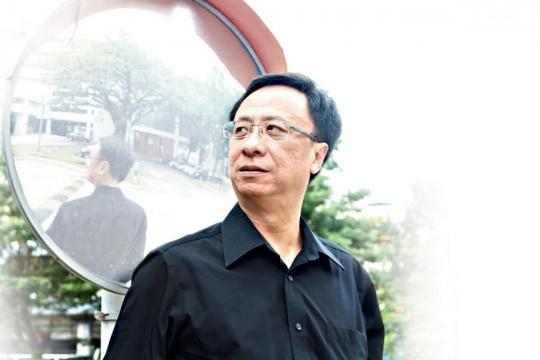Heavenly Road Pricing
Heavenly Road Pricing

 At long last, after more than a decade of discussion, tests and trials, GPS (global positioning system) satellite-tracked ERP (electronic road pricing) is deemed to be technically feasible here. This makes Singapore the fi rst country in the world to fi nd an “eye-in-the-sky” solution to “pricing” the multitude of vehicles that zip through its thick urban jungle of high-rise buildings and capillary network of roads.
At long last, after more than a decade of discussion, tests and trials, GPS (global positioning system) satellite-tracked ERP (electronic road pricing) is deemed to be technically feasible here. This makes Singapore the fi rst country in the world to fi nd an “eye-in-the-sky” solution to “pricing” the multitude of vehicles that zip through its thick urban jungle of high-rise buildings and capillary network of roads.
All others have failed – or at least, none have arrived at an accuracy level that is acceptable, or devised a model that is cost effective. Germany is about the only place where GPS satellite technology is used for road tolls, but that is isolated to heavy trucks on its autobahns.
Even though GPS technology has been around for decades, with onboard navigation now as commonplace as Bluetooth connectivity, a pricing application is a different ball game. The main hurdle has been the “canyon effect” posed by a city’s dense conglomerate of tall structures, which can muddle up signals and lead to incorrect pricing.
Considering Singapore’s low tolerance for errors, the conclusion that satellite ERP is now feasible is a remarkable milestone. The development will not only allow us to dismantle the 70-plus ugly blue-and-white gantries that dot our cityscape, it will also allow us access to a host of urban transport solutions that are currently manual and inefficient.
These include coupon-less street parking, flexible tariffs for Off-Peak Car usage, recovery of stolen vehicles, and “live” traffi c information feeding an intelligent navigation system (perhaps one that tells you the cost and time of a choice of routes). In fact, such a technology can also be adapted to enforce the law in illegal parking, “catch” certain traffi c violations, and even determine motor insurance premiums, which are adjusted according to the way you drive (i.e. the risk factor).
But satellite ERP’s main purpose is more effi cient road pricing, with its killer application being distance-based charging. This is where the Singapore leadership gets to put its political will to the test again.Will the government be bold enough to implement charging-by-distance-driven? Or will satellite ERP be yet another high-tech toy for Land Transport Authority engineers to “play” with?
Already, we seem to be witnessing a reluctance to use the gantry-based system to control congestion. The maximum Cashcard deduction of $5 is negligible compared to the depreciation rate of an everyday car (about $30 per day). The preference has been to use upfront measures to keep our roads relatively clear, such as the vehicle quota system and punitive registration taxes.
Upfront expenses, once paid, are forgotten, but a beeping in-vehicle unit (IU) is a daily and unpopular reminder. Which is probably why we often see owners of $400,000 limousines stopping by the road shoulder to wait out the remaining minutes of an ERP period. Or for that matter, those who park illegally because they loathe using a 50-cent parking coupon.
So, a distance-based congestion pricing system that charges, say, 50 cents or one dollar per kilometre, could be even more unpopular with these people. They also won’t have the opportunity to park illegally or park without paying any more.
It would be a shame if the capability of the second-generation ERP system isn’t fully exploited. It would be like buying a Ferrari, only to use it for grocery runs.
This article was written by Christopher Tan, consulting editor for Torque.


12 Comments
Recommended Comments
Create an account or sign in to comment
You need to be a member in order to leave a comment
Create an account
Sign up for a new account in our community. It's easy!
Register a new accountSign in
Already have an account? Sign in here.
Sign In Now